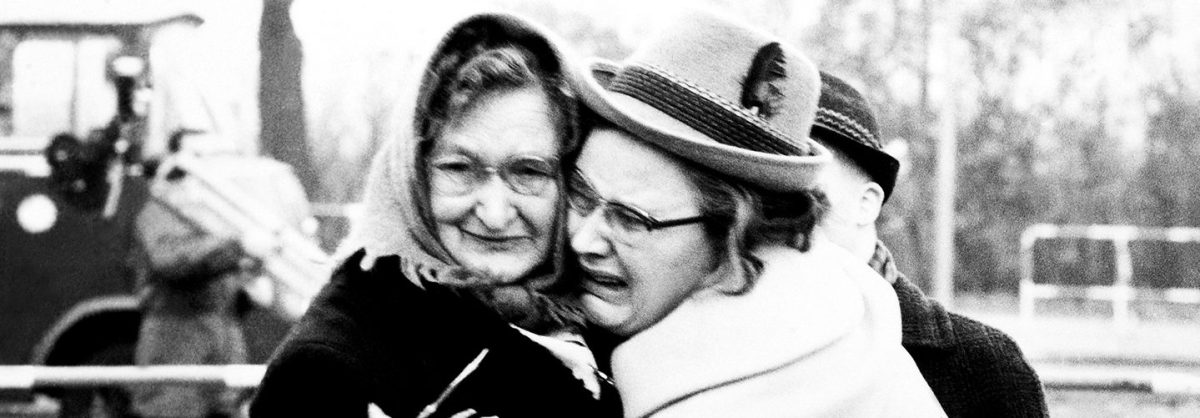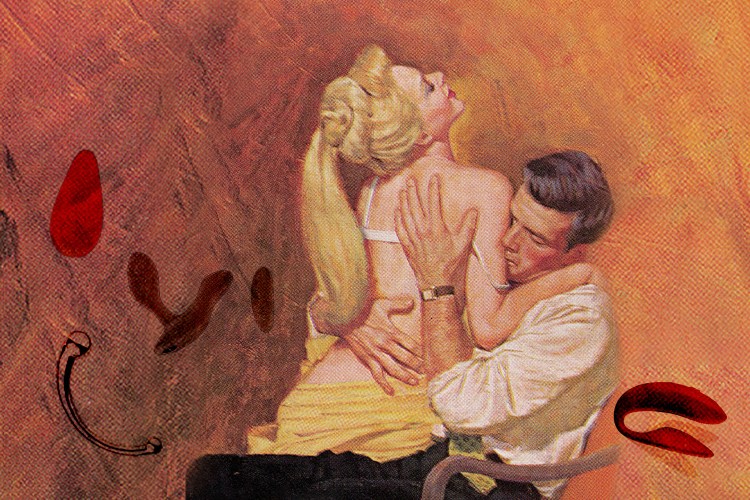For more than two years, the Berlin Wall — constructed by East Germany to prevent its citizens from leaving its communist regime — was shut off completely. But on Dec. 20, 1963, nearly 4,000 West Berliners were allowed to cross into East Berlin to visit relatives. East and West Berlin reached an agreement that over 170,000 passes were eventually issued to West Berlin citizens. The pass allowed a one-day visit to communist East Berlin.
Dec. 20 was marked with propaganda, according to History. Loud speakers in East Berlin greeted visitors with the announcement they were now in “the capital of the German Democratic Republic,” which was a political division most West Germans refused to accept. Visitors were also given brochures that explained the wall was built to “protect our borders against the hostile attacks of the imperialists.” Many newspapers on the West Berlin side chastised those who decided to visit East Berlin, saying that they were “pawns of East German propaganda” and claiming the communists would use this to gain West German acceptance of a permanent division of Germany.
But the day was also marked by the outpouring of emotions, including both tears and laughter, during the reunions that took place between separated family and friends. Take a look at some of the pictures below of that day, and of the Berlin Wall’s history. The wall fell Nov. 9, 1989.
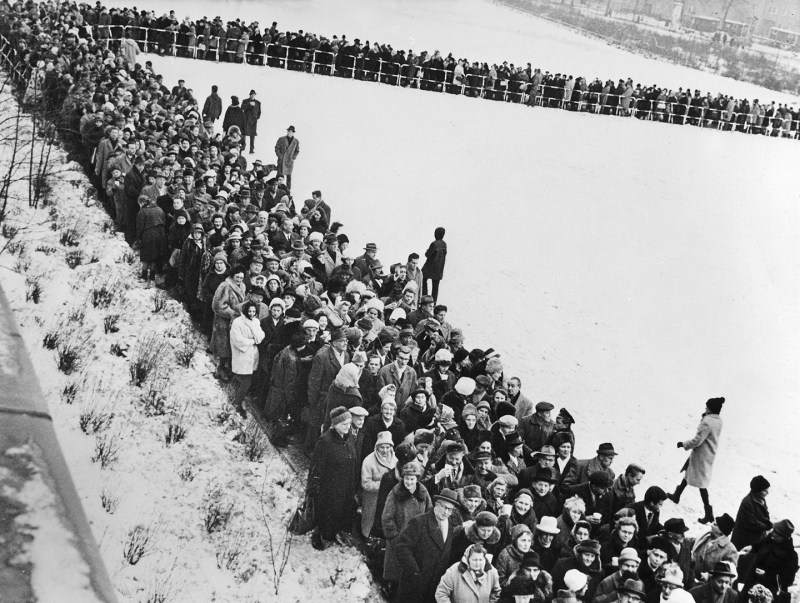
Passage Agreement Christmas 1963:
People line up in front of the application office for passports.
AP Frei-fr-Deutschland-™sterreich-Osteuropa! esperrt-fr-politische-Werbung!
ullstein bild - AP
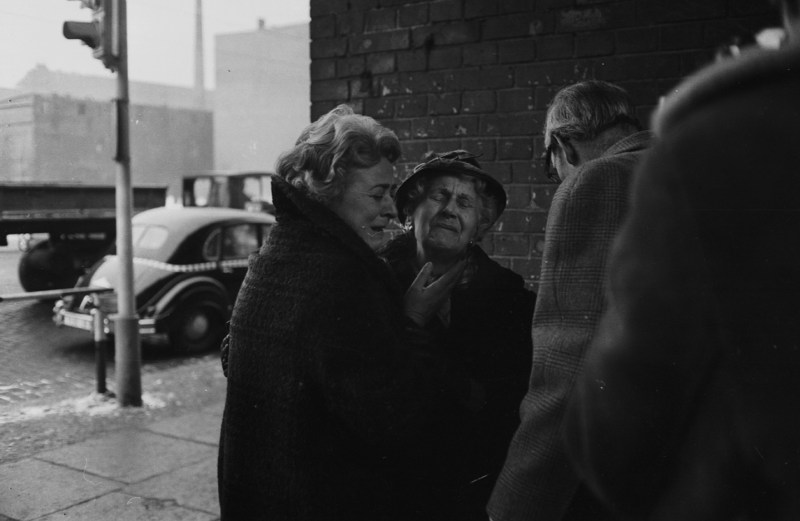
An emotional reunion of family members following the first opening of the Berlin Wall, Germany, December 22, 1963. (Terry Fincher/Express/Getty Images)
Getty Images
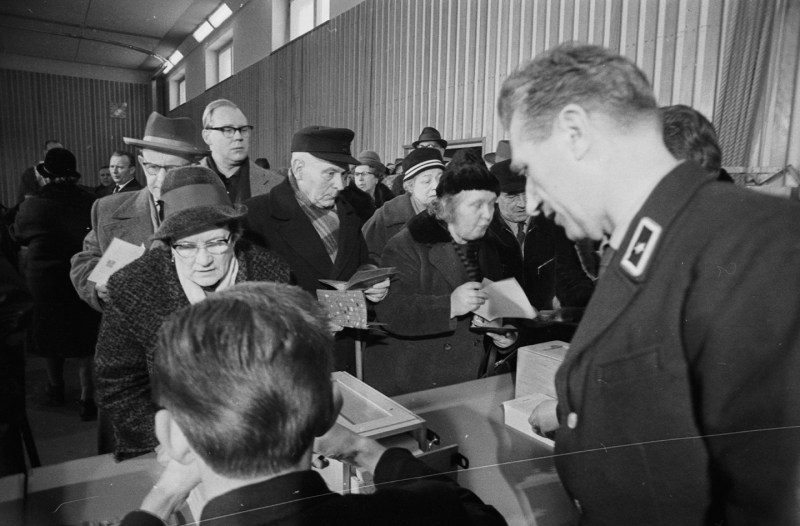
Citizens of West Berlin lining up for Christmas passes into East Berlin, following the first opening of the Berlin Wall, Germany, December 18, 1963. (Terry Fincher/Express/Getty Images)
Getty Images
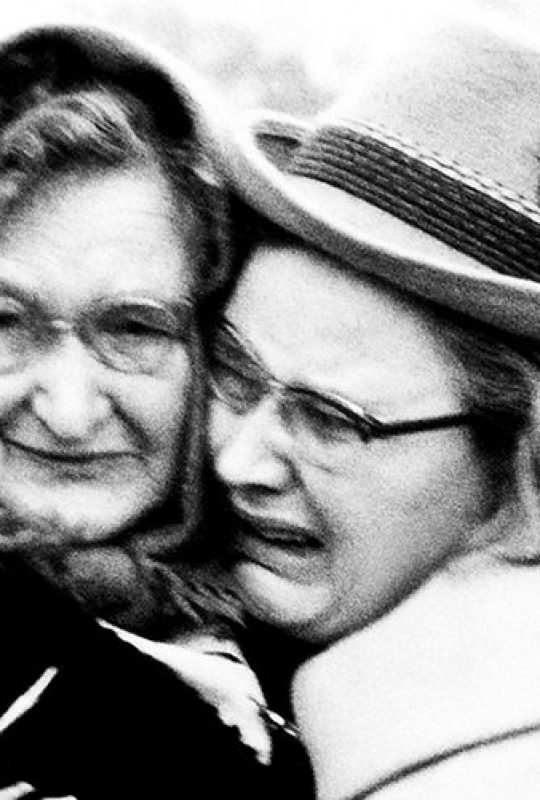
Berlin, Opening Of The Wall Between East And West Side. 1964 (Keystone-France/Gamma-Keystone via Getty Images)
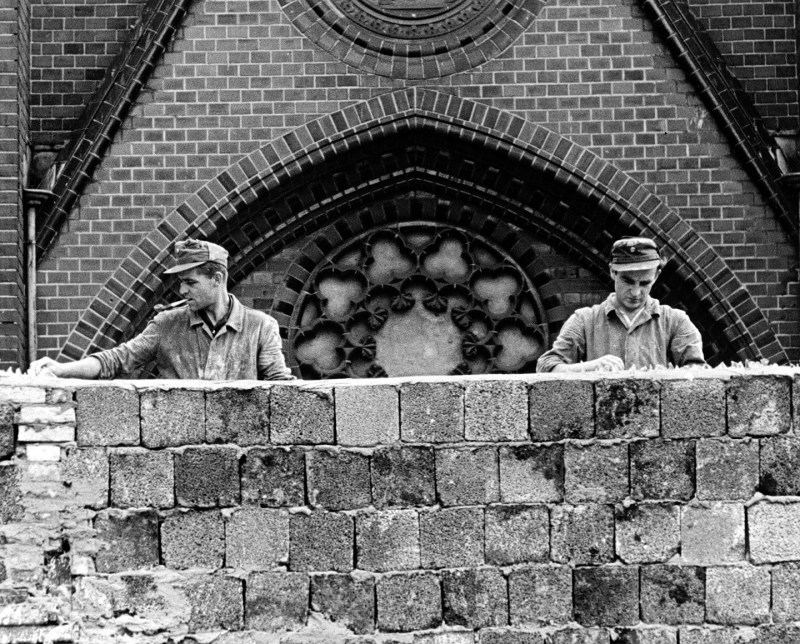
Blocking the church – Two East German workers working on a huge 15 feet hight Wall put pieces of broken glass on the top to prevent East Berliners from escaping. (AP-Photo/Kreusch)
ASSOCIATED PRESS
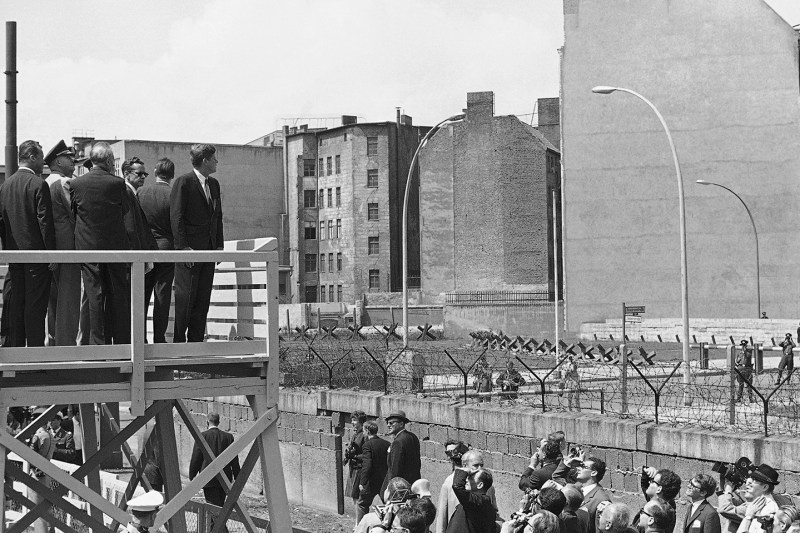
President John Kennedy standing on an observation platform as he looks into East Berlin across the Communist Berlin Wall that divided the German city. (AP Photo)
AP
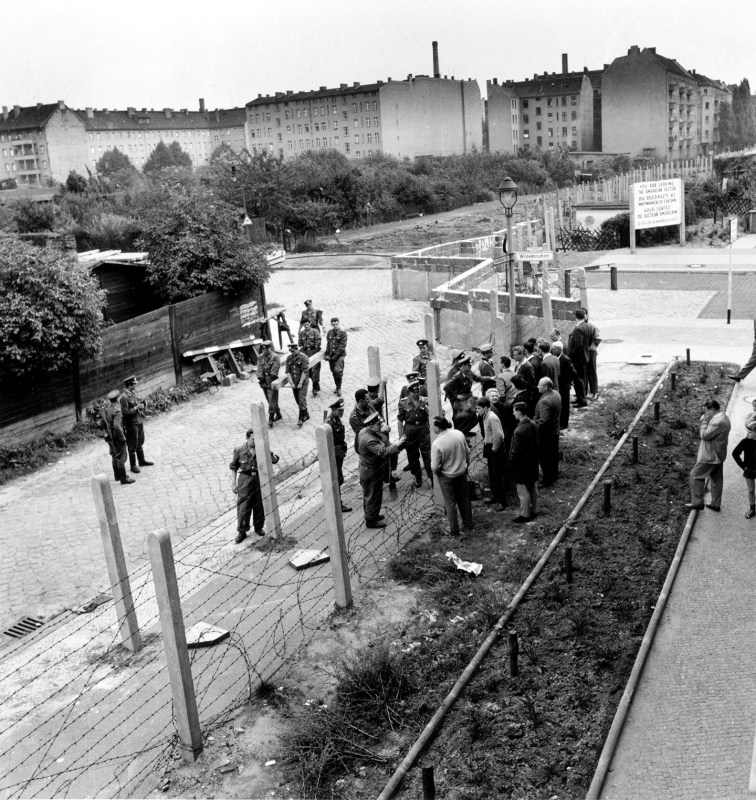
West Berliners, at right, talk with East Berlin policemen through the barbed wire fence at the border in Germany in Sept. 1961. Other Communist officers bring new posts to reinforce the barrier in East Berlin’s Wildenbruchstrasse. A cement block wall and additional barbed wire fence mark the border in the background, cutting a tragic dividing line through the heart of the city. (AP Photo)
ASSOCIATED PRESS
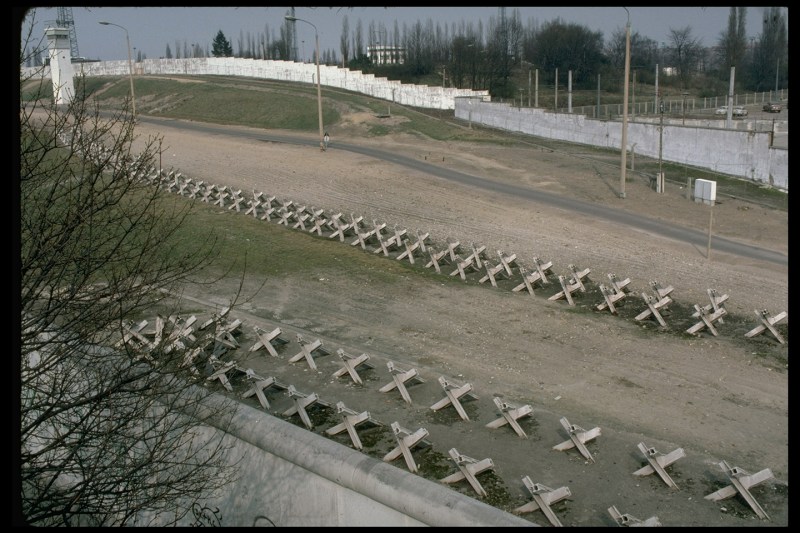
No man’s land w. Berlin Wall; East side beyond (Sahm Doherty/The LIFE Images Collection/Getty Images)
The LIFE Images Collection/Getty
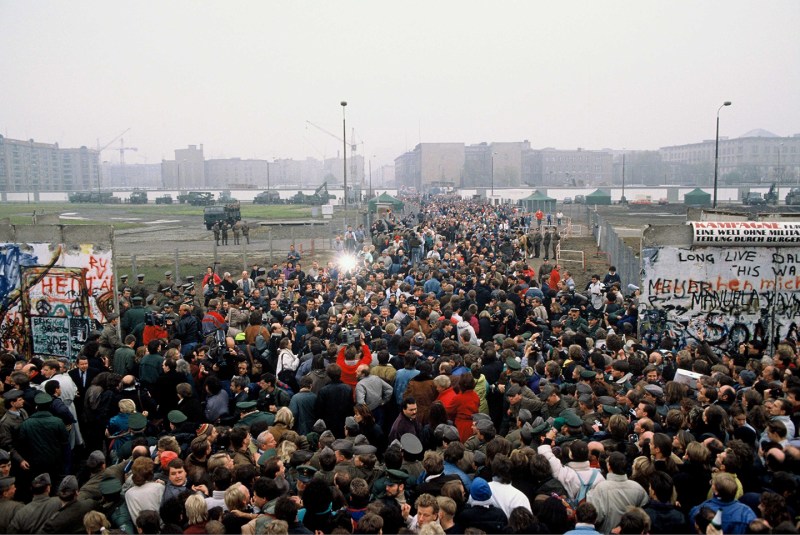
Thousands of East Germans stream through the Berlin Wall a few days after it’s opening on November 9th, 1989 when the East German Government announced it would start granting exit visas to anyone who wanted to go to the West. The announcement was misinterpreted as meaning the border was completely open. East German border guards were unable to stop the rush of people which led to the complete opening of the border within days. (Robert Wallis/Corbis via Getty Images)
Corbis via Getty Images
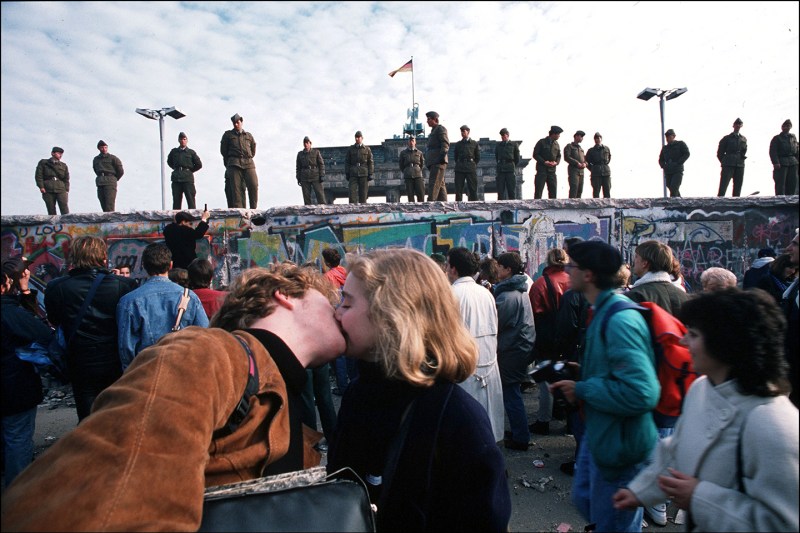
The Berlin Wall opening in Berlin, Germany, November 1989. (Patrick PIEL/Gamma-Rapho via Getty Images)
Gamma-Rapho via Getty Images
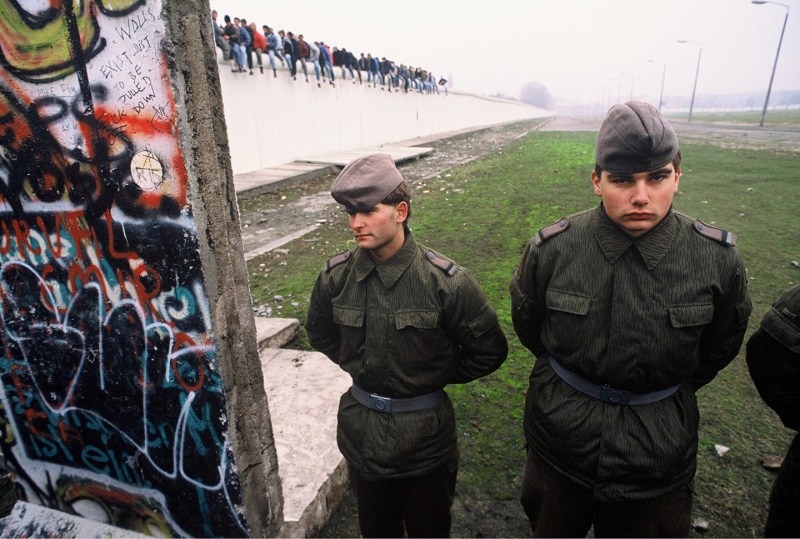
East German Border Guards look on in glumly at a newly opened section of the Berlin Wall a few days after the opening of the Wall on November 9, 1989. In the background is the former “death strip” or no-man’s land between segments of the Wall that was almost impossible to cross. On the top of the Wall are celebrating East and West Germans who would have been shot only a few days before. The side of the Wall facing East remains white while the West facing side is covered in graffiti. A caption reads “WALLS EXIST JUST TO BE PULLED DOWN ” (Robert Wallis/Corbis via Getty Images)
Corbis via Getty Images
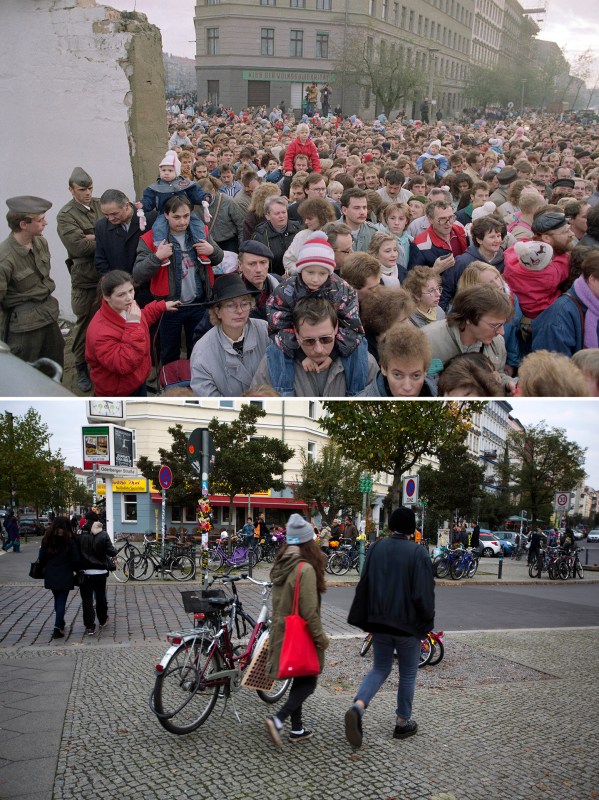
The combo shows east Berlin citizens crowding the new passage at Bernauer Strasse in Berlin where East German border police tore down segments of the wall on Nov. 11, 1989, and people walking at the crossing Bernauer Strasse and Oderberger Strasse on Oct. 26, 2014 – 25 years after the fall of the wall. (AP Photos/Rudi Blaha, Markus Schreiber)
AP
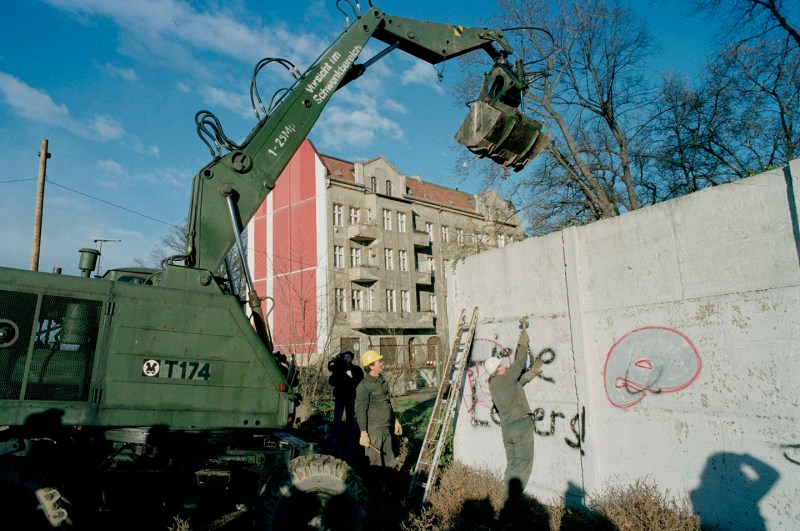
Workers prepare the last wall segment for dismantling in the center of Berlin, Nov. 30, 1990. A year after the opening of the wall, the concrete barrier, which divided the city for 28 years, has completely disappeared from the center of Berlin. (AP Photo/Axel Kull)
ASSOCIATED PRESS
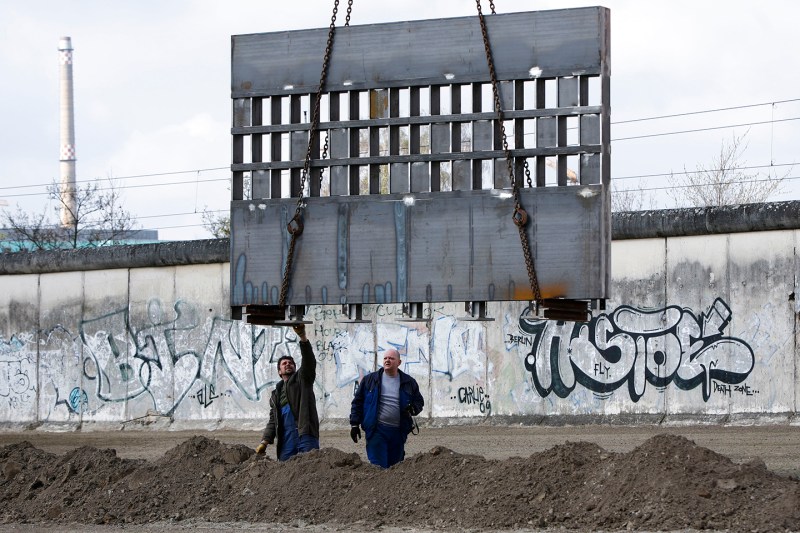
Workers set up a “Window of Remembrance” at a new part of the central memorial site for the victims of the Berlin Wall at Bernauer Strasse in Berlin, Friday, April 9, 2010. The Window of Remembrance” commemorate all 128 people killed at the city’s Cold War divide before it was overturned in 1989. The new part of the memorial site, located on the former death strip of the Berlin Wall, will open for public on May 21, 2010. (AP Photo/Markus Schreiber)
ASSOCIATED PRESS
This article was featured in the InsideHook newsletter. Sign up now.














